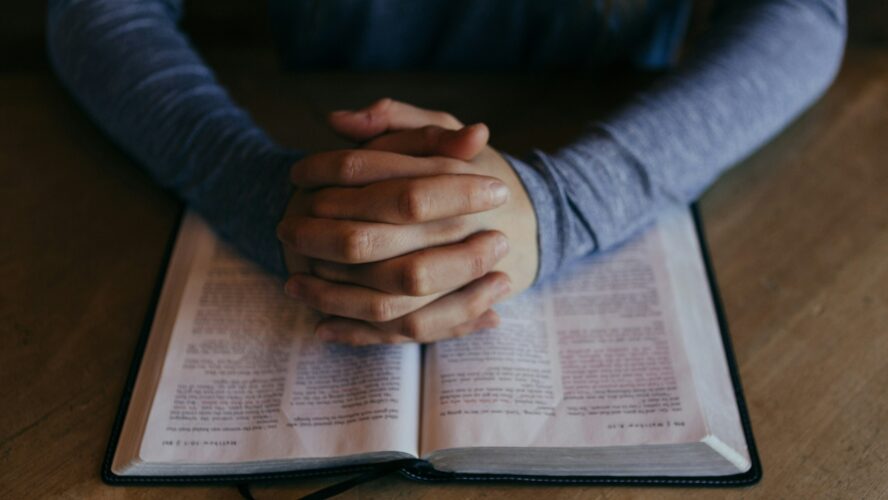
I’m righteous, only when things are right with us
Recently I was asked what my favourite Bible verse is, and my answer was Romans 14:17:
For the kingdom of God is … righteousness, peace and joy in the Holy Spirit.
We all tend to understand what peace and joy are, but what is ‘righteousness’ and how does it relate to poverty?
As a young Christian, I believed that someone would become righteous when they became a Christian, acknowledging the wrong things they have done, asking God for forgiveness and being forgiven because of the work that Jesus had done on the cross. At that point they were made ‘righteous’. However, the flaw to that thinking is that it gives the impression that someone being made righteous is all about the individual, rather than the relationship. The person is only righteous, because a broken relationship between them and God is made right through forgiveness.
The Greek word for righteousness
Part of the reason for the confusion is due to the English translation of the key ancient Greek word, dikaiosune and its derivatives. Often, but not always, when translating into English the ancient Greek texts in the New Testament, translators have translated the word as ‘righteousness’, a word that tends only to be used in religious contexts and is open to confusion. However, when the same word is used in other ancient Greek texts, including Aristotle’s Nicomachean Ethics, the word is translated as ‘justice’. Even today, if you use an online translator, you’ll notice that the word justice translates into dikaiosune in contemporary Greek.
In English, the word justice is more closely linked with how we relate to others. If we do wrong against another person, then we claim it as an injustice and may even pursue a criminal or civil case in court. For Greek-speaking people at the time of the New Testament, dikaiosune held this same idea of how we relate to others, not simply an internal sense of ‘righteousness’. When we talk about righteousness, we are really talking about being in a ‘right relationship’.
Four right relationships
In CAP we talk about the four broken relationships of the Fall. These relationships are with:
God
others
ourselves
the rest of creation
Each of these relationships have been broken both at an individual and systemic level ever since that first act of rebellion in the Garden of Eden. When one of the other relationships is broken, then our relationship with God is also broken.
For example, we read in 1 John 4:20 that if our relationship with others is broken then it’s also broken with God:
For whoever does not love their brother and sister, whom they have seen, cannot love God, whom they have not seen.
We read in multiple verses about how God made us in his image (Genesis 1:27), values us more than the birds in the air (Matthew 6:26), and loves us enough for Jesus to die for us (John 3:16, Romans 5:8). If we do not value ourselves, then we are denying the value that God has for us.
Throughout the Bible we have examples of God calling people to look after things that he has given them. In the same way we are called to look after what God has entrusted to us. Jesus tells a parable (Matthew 25:14–30) about different people being entrusted with different amounts to look after and those who do their best are rewarded. When we don’t look after the rest of creation that God has made, then again it breaks our relationship with God.
What does righteousness look like?
Ultimately, our relationships can only be made right through Jesus, however living a righteous life means that we should be doing what we can to heal and restore our broken relationships and that means showing God, others, ourselves and the rest of creation, the value and respect that each deserves.
Throughout the Bible, righteousness is regularly linked to having joy and peace. We see this in our opening verse (Romans 14:17), Hebrews 7:1–2, Isaiah 32:17 and many more. This shouldn’t be a surprise to us because if we are at peace in our relationships, then our relationships will be ‘right’ and we will have joy. Likewise, if our relationships aren’t right, then we will not be at peace with others, often not at peace with ourselves and often lacking joy.
Living a righteous life
Living a life that is full of peace and joy because all our relationships are ‘right’ sounds wonderful, however it would be reasonable to question whether that is even possible. It certainly isn’t easy. When people hurt, insult or leave us, or when life feels like a struggle financially. It isn’t easy to keep our relationships right. In our verse in Romans there is a key phrase – ‘in the Holy Spirit’.
Keeping our relationships right might seem like an impossible task, and it probably is if we do it in our own strength, but we don’t have to do it in our own strength. Jesus said that he was leaving the Holy Spirit with us (John 16:7). The Holy Spirit is sometimes referred to as a comforter, counsellor and guide and so can help us in our relationships.
God’s kingdom
As God’s kingdom people, Christians are called to play their part in healing and restoring these relationships. This is what it means to hunger and thirst for righteousness and this should be our goal. As Jesus said in a passage known as the sermon on the mount:
Blessed are those who hunger and thirst for righteousness, for they will be filled. Blessed are those who are persecuted because of righteousness, for theirs is the kingdom of heaven.
Matthew 5:6 and 10
May you be a person who is blessed because you hunger and thirst for righteousness.






